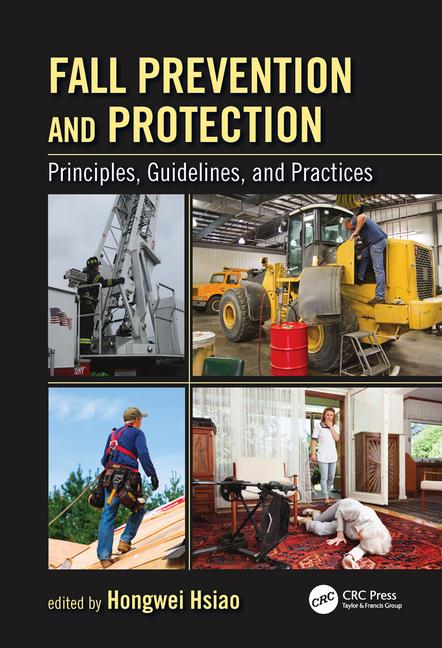
Know the right words to get you noticed
You need to differentiate yourself from the crowd if you want to advance far in the environmental health and safety profession. In the past, this was often accomplished by obtaining academic degree(s) and professional credentials, such as the CIH, CSP, CHMM or similar designations. However, as the EHS profession shifts from a primarily technical to a multifaceted managerial profession, other competencies become more important and must be developed and displayed.
Under Daud et al (2010) Iceberg Model of Competencies1, knowledge and skills that may be represented by academic degrees and professional credentials sit above the water and are easy to observe and measure. The bulk of competencies that include social role, self concept, trait and motive, sit below the water and are “less easy to observe and measure” but “differentiate superior from average performers.” Daud defines social role as the image one projects to others. Self concept is a person’s sense of identity and worth. Trait is the general disposition to behave in a certain way. And motive is recurrent thoughts that drive behavior. You need to display these competencies to differentiate yourself from other EHS professionals. Particularly, if you seek to advance to another EHS job, there are three key ways to display these competencies. One, what you say about yourself in a letter of introduction. Two, what you’ve written in your résumé. And three, what other people (i.e. the references listed in your résumé) say about you. If you and your references choose the right words, a computer scan or person will flag your information and help you get noticed. The wrongs words will make a résumé stagnant in the pile. The rights words will help get a personal interview and separate you from the pack. A foot in the door is often the last step to landing the job.
Standard words to describe work competencies are generally known by human resource personnel and are familiar to business managers. Most of these standard words are found in the report: What Work Requires of Schools: A SCANS Report for America 2000, U.S. Department of Labor, http://wdr.doleta.gov/SCANS/whatwork/. You have probably seen these words unchanged or slightly rephrased in annual performance evaluation reports and similar documents.

The choice of words is based upon the competencies emphasized in a job. For example, the following words are found in jobs that emphasize personal qualities:
Responsibility. Exerts a high level of effort and perseverance toward goals attainment. Works hard to become excellent at doing tasks by setting high standards, paying attention to details, working well and displaying a high level of concentration even when assigned an unpleasant task. Displays high standards of attendance, punctuality, enthusiasm, vitality and optimism in approaching and completing tasks.
Self-esteem. Believes in own self-worth and maintains a positive view of self; demonstrates knowledge of own skills and abilities; is aware of impact on others; and knows own emotional capacity and needs and how to address them.
Sociability. Demonstrates understanding, friendliness, adaptability, empathy and politeness in new and on-going group settings. Asserts self in familiar and unfamiliar social settings; relates well to others; responds appropriately as the situation requires; and takes an interest in what others say and do.
Self-management. Assesses own knowledge, skills and abilities accurately; sets well-defined and realistic personal goals; monitors progress toward goal attainment and motivates self through goal achievement; exhibits self-control and responds to feedback unemotionally and non-defensively; is a self-starter.
Integrity/Honesty. Can be trusted. Recognizes when faced with making a decision or exhibiting behavior that may break with commonly held personal or societal values; understands the impact of violating these beliefs and codes on an organization, self and others; and chooses an ethical course of action.
In addition to the above, the SCANS Report will contain the standard wording for a variety of other competencies. When the need arises, describe yourself by slightly rephrasing words, e.g. competency definitions in the SCANS report. Be aware, however, that you will need personal examples of competencies ready to discuss. If you can’t provide an example, the competency may not be claimed. Fill any gaps with an example, even if it may seem minor and inconsequential. Another advantage of this action is that you may identify competency weaknesses that warrant attention.
Target the job
All jobs are different. Therefore, each job you seek should have its own unique résumé, letter of introduction, etc. Emphasize the right words for the right job. Given the electronic nature of building and modifying word documents, this task is not as cumbersome and time-consuming as it sounds. You may see the wording for SCANS competencies, too, if you’re asked to complete an electronic application for a job. A job description coupled with a simple company background check (e.g., Internet search) will provide clues to the competency words you should use.
Prep your references
Don’t be shy about prepping your professional references on what to say about you. Show and tell them where you found the right words to describe your competencies. Encourage them to use similar wording and provide your references examples of your competencies. Any professional reference worth their salt will welcome the information that will make their assistance easier. If you think your actions will pressure someone to lie for you, you’re in the wrong profession.
Go to the dance
Some people do not pursue a better EHS job because they feel they can’t beat the competition or they worry about meeting expectations in the new job. But don’t let this be your choice. Let the people who evaluate your résumé and invite you to an interview make the choice. In almost every case, once you’re hired, the employer will help you succeed, since it’s in everyone’s best interest. Everyone learns on the job.
Sell yourself
People may display their academic degrees and professional credentials on a wall. Where someone was employed in the past may give a quick indication of work experience. But this information only reveals a small part of what and who they are. Advancing in the EHS profession often means letting strangers get to know you better. Personal competencies, particularly those of a non-technical nature that lie below the surface, must be displayed to strangers by your own initiatives, or at the very least, by the promotion of other people. During initial new hire evaluations, these competencies are displayed primarily through written words and most often within a résumé. The best résumés use the right words to get noticed. The right words differentiate superior from average performers. The right words for this purpose may be found in the SCANS report and similar documents.
References
1. R. Daud, M. Ismail, Z. Omar (2010). Exploring Competencies. Professional Safety, Vol. 55, Number 10, pp 39-47.

